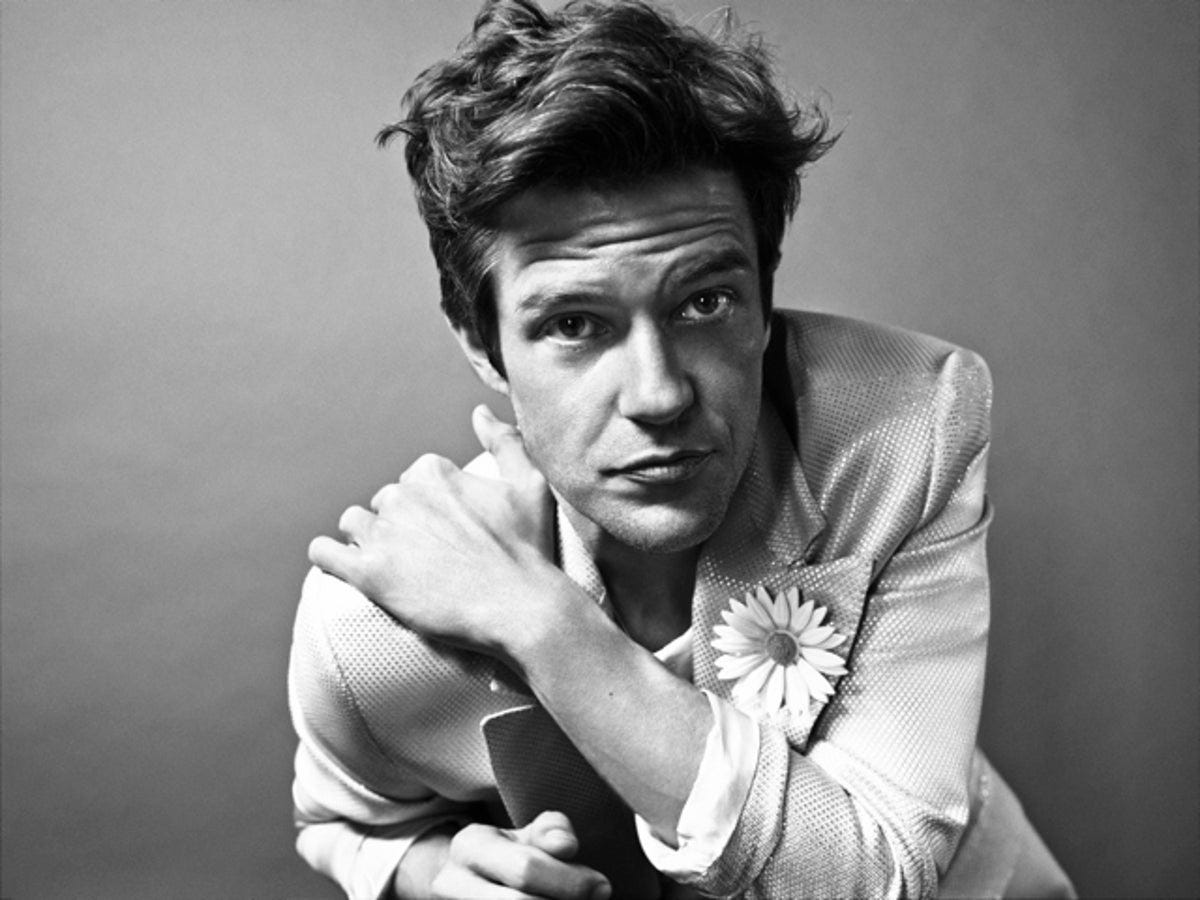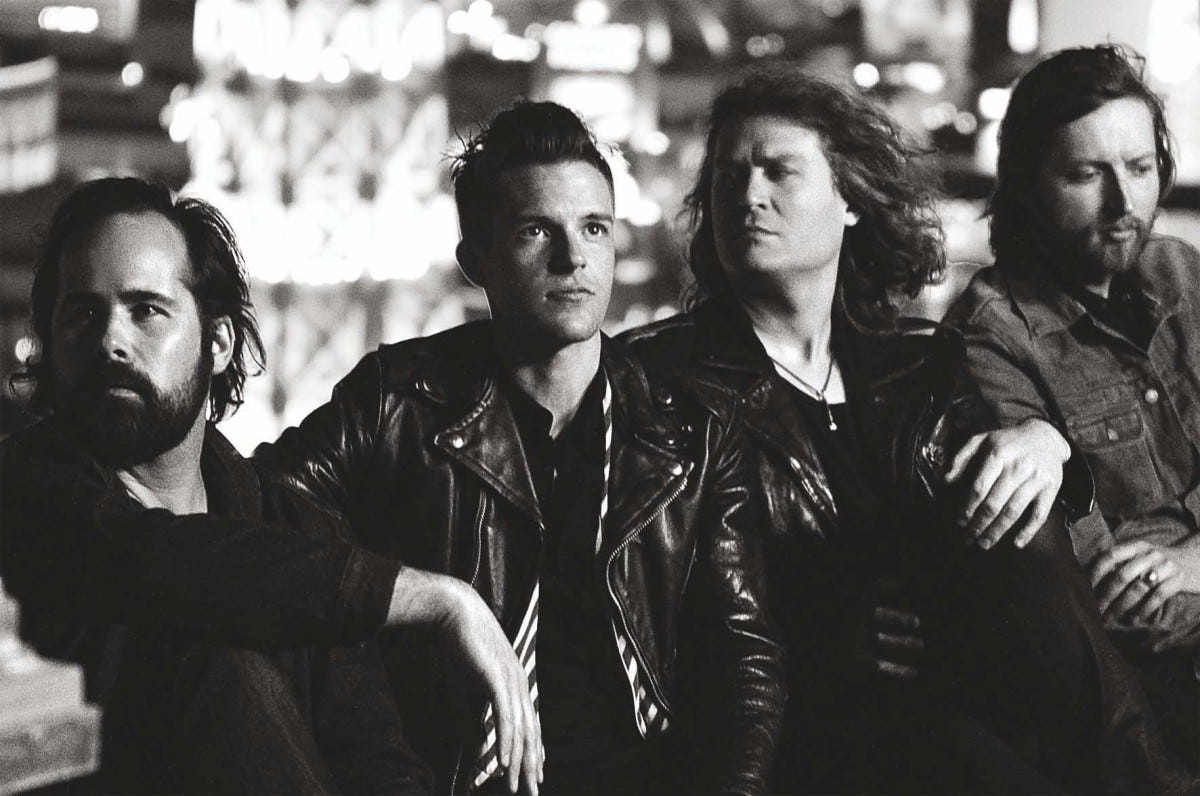A video came up on my YouTube Shorts recently where one podcast host was quizzing the other podcast host on who the “biggest Christian rock band” in the world is.
The second host was astonished to hear that the answer was The Killers. The astonishment was less at the correct answer and more at The Killers being considered a Christian rock band. A debate ensued.
In the history of Western pop music, there have been plenty of music acts that have sung, explicitly or implicitly, about religious themes, usually along the lines of Christianity. I think there are certain tiers to their conversation with the faith.
Tier 1:
This group is as overt as they come. They sing about Christianity in a very explicit way and thrash guitars while they do it. These groups usually came around at the beginning of the Culture Wars in the late 80s/90s and were seemingly a direct response to Christianity losing its flavor worldwide. Every song of these acts feels somewhat like an altar call and could be heard blasting in your local youth group meetings on Wednesday nights.
Examples would be DC Talk, Audio Adrenaline, Newsboys, Delirious, Petra, The OC Supertones, Ressurection Band, Petra, etc. This would later turn into Christian Rap as a response to the Culture Wars with the likes of TobyMac, Lecrae, Andy Mineo, etc.
Tier 2:
This group is not nearly as explicit, but they still hold tightly to their values in their music. As opposed to the first group, you’ll see these groups’ music alongside other “secular” acts of their time, but every so often, they’ll punch you in the face with a track that shares undisguised themes of faith. You were probably upset that your youth group didn’t play these artists, which made you edgier than the rest.
Examples: Relient K, Switchfoot, Hawk Nelson, Family Force 5, Stellar Kart, NeedToBreathe, etc
Tier 3:
We’ve now crossed over to the other side of the threshold. These artists are mainstream artists who hide their sacred longings well. You’ll hear them on Top 40 radio, perhaps, but their songs are ripe with optimistic Transcendental musings. Sometimes, their songs reference Christianity or a mainland religion explicitly, but this is not a necessity. It’s hard to nail down a list of artists for this group as the previous two tiers are built into a culture, but the primary flag bearers for this group seem to be U2.
Tier 4:
The final tier is a group of artists who wrestle with Transcendental longings but usually end up unable to fully grasp them, which leaves the lyrics cynical or without hope. These artists are generally a part of (what we now call) a deconstruction movement, either as a direct rejection of their upbringing or a more general rejection of the American cultural bent towards Christianity. Vampire Weekend’s Modern Vampires of the City is an excellent example of this, but songs from Bon Iver, Wilco, Arcade Fire, and others attempt to tackle these topics, too.
I find that The Killers fit perfectly in Tier 3. The major discrepancy here is that Brandon Flowers, the primary songwriter of the band, is a Mormon, but it does stand that he is a devout member of The LDS.
Even within this discrepancy, I’ve found myself quite connected to Flowers’ songwriting and his general approach to the cosmos. Each of The Killers’ albums asks (and attempts to answer) a major existential problem: who am I? Do I have a purpose? If so, what is my purpose?
I’m drawn to the flavor of how Flowers asks these questions. Yet in the asking, Flowers understands one crucial aspect of the human condition that I find missing from other songwriters like him:
The heart is deceitful above all things.
Flowers’ musings aren’t asked in a vacuum; instead, they’re asked within the plains and deserts of human frailty. You don’t necessarily have to be religious to believe that humans are usually terrible at being humans. And, instead, tautologically, that’s what makes us human. Flowers, instead of circumventing it, dives head first into the messiness.
Consider the first track on Hot Fuss, “Jenny Was a Friend of Mine.” Before we’ve been adequately introduced to our main character, we find ourselves in an interrogation room as he is being accused of murder. By the end of the album, we can be quite sure our main character is guilty, yet we’re consistently asked throughout the album: how far is too far before forgiveness is off the table?
However, with one of my favorite lines (from a somewhat forgotten track off of Sam’s Town), Flowers is singing about the titular character in the song “Uncle Johnny,” who has a nasty cocaine addiction. Flowers sings:
My appetite ain’t got no heart
He repeats it for emphasis. And therein lies the tension of the human condition. The duality of flesh and spirit mirrors the duality of transcendence and immanence. We want to be people who seek the common good, understand one another with empathy, and love and care for the world. Yet our basest longings are rarely in line with the spirit. We have tendencies of selfishness, pride, and envy, and the tension is unrelenting.
And yet Flowers sings of hope. Towards the end of each of his albums (sometimes rather sporadically, though), Flowers yearns for something more true than the rumblings of the flesh. He yearns because he knows it’s there.
I’ve spent the better part of the last couple of years or so mulling over Flowers’ lyrics, and I’m shocked by the depth and sincerity with which he writes. The Killers might be the most popular *true* American rock band, but they’re also the wisest, and time has been kind to them. Each album presents a new question and new musings that can only be tackled with time. It brings me great joy to sit down and write about them, and over the following weeks, I’ll tackle each one of their albums. I hope that along the journey, you see the genius, but more importantly, the sincerity for some transcendent that I do.





